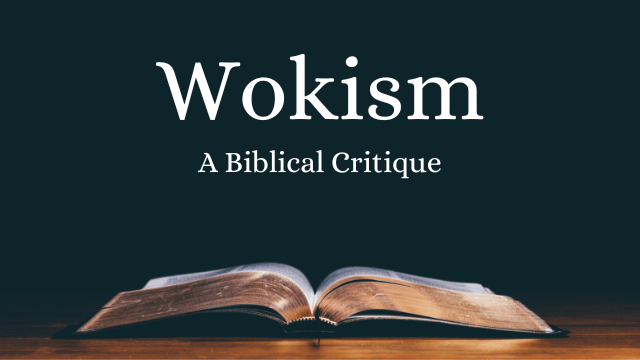Wokism (Part 2) - Social Justice (Part B)
Submitted by Pastor Chad Wagner on Wednesday, August 2, 2023.


Wokism (Part 2) - Social Justice (Part B) 5. The only person or entity that has the right to distribute resources is he (or it) who owns them. A. The owner of something has power over it (Act 5:4). B. No person or entity has the right to distribute someone else’s resources to others. i. That is called theft (Exo 20:15). ii. Theft is theft, no matter if it is committed by an individual, a mob, or a government. iii. Receiving stolen property is also a crime, whether the stolen property comes from an ordinary thief or a government agency. C. No person has an inherent right to any of the resources in society. i. One man’s right is another man’s obligation. ii. If one man has a right to anything (food, shelter, healthcare, transportation, education, etc.) then another man has an obligation to provide it to him. iii. If the other man does not want to provide it for him, or to provide him the means to acquire it, then that other man must be forced to provide it. iv. This means that the provider of the thing is made a slave of the man to whom it is provided. v. Forced slavery is certainly not justice! 6. God has ordained that there will be both rich and poor on this earth. A. God is the maker of both the rich and the poor (Pro 22:2). B. The Lord makes some people rich and some poor (1Sa 2:7; Psa 75:7). C. God gives some men power to get wealth (Deut 8:18; Pro 10:22), but not all of them. D. Who are we to try to change God’s order and make everyone equal? 7. The rich are not superior to the poor in God’s sight. A. God does not regard the rich more highly than the poor (Job 34:19). B. In fact, God has chosen the poor of this world who are rich in faith to inherit the kingdom (Jam 2:5). C. It is the character of a man, whether rich or poor, which determines his superiority over another (Pro 28:6). D. Rich men are sometimes wicked (Jam 2:6-7; Jam 5:1-6). 8. God did not ordain a progressive tax in Israel. A. When God commanded that an atonement offering was to be made by every man in Israel, all paid the same half shekel whether they were rich or poor (Exo 30:11-15). B. When it came to giving to the Lord to support the priests, Levites, and the temple service, all were to give tithes (10%) of their increase (Num 18:24). 9. People have a responsibility from God to help the poor voluntarily when they are able. A. Jesus taught that we are to help the poor when we will (Mar 14:7). B. Giving to the poor should be done willingly and cheerfully, not grudgingly or of necessity (2Co 9:7). C. Giving to the poor should be done with discretion, not carelessly (Psa 112:5). D. God commanded Israel to help those in genuine need (Deut 15:7-11), but He never set up a welfare state wherein the government forcibly took wealth from one person to give to another. E. God’s welfare program under the law of Moses was a workfare program (Lev 19:9-10; Deut 24:19-22). F. God will judge us for not helping the poor when we are able and when their need is brought to our attention (Pro 28:27). 10. Poverty will never be eradicated from the earth. A. We will always have poor people among us (Mat 26:11; Deut 15:11). B. Attempting to eradicate poverty and make everyone equal is a direct assault on the word of God. 11. Wealth redistribution is evil. A. Some poor people are poor because they are lazy (Pro 10:4a), and most rich people are rich because they work hard (Pro 10:4b). B. Some poor people are poor because they are wasteful (Pro 12:27; Pro 18:9). C. Some poor people are poor because they can’t control their spending (Pro 21:17). i. Redistributing wealth (robbing the wealthy to give to the poor) will not end poverty, but will instead create more of it. ii. Wealth redistribution takes wealth from productive people who would use that wealth to create products, services, and jobs which improve the standard of living of everyone and gives it to those who are unproductive and will waste it. D. Those who will not work should not eat (2Th 3:10). E. Taking food (or the money to buy it) away from those who do work and giving it to those who won’t is theft which incentivizes lazy and wicked behavior.
| Attachment | Size |
|---|---|
| Wokism (Part 2) - Social Justice (Part B), 8-2-23.mp3 | 35.6 MB |
